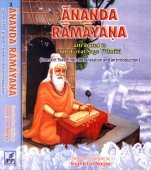Kalaha, Kalahā: 22 definitions
Introduction:
Kalaha means something in Buddhism, Pali, Hinduism, Sanskrit, Marathi, Jainism, Prakrit, Hindi, biology. If you want to know the exact meaning, history, etymology or English translation of this term then check out the descriptions on this page. Add your comment or reference to a book if you want to contribute to this summary article.
Images (photo gallery)
In Hinduism
Dharmashastra (religious law)
Source: archive.org: The religion and philosophy of the Veda and the Upanishads (dharmashastra)Kalaha (कलह) is the name of a deity to be invoked in a certain ritual, according to the Mānavagṛhyasūtra 2.14. Accordingly, the deity is prescribed when one suffers from possession by the Vināyakas, Śālakaṭaṅkaṭa, Kūṣmāṇḍarājaputra, Usmita and Devayajana. The Baijavāpagṛhyasūtra replaces the names of last two vināyakas with Mita and Sammita. According to R. C. Hazra in his Gaṇapati-worship, “this rite is both expiatory and propitiatory in nature and in which various things including meat and fish (both raw and cooked) and wine and cakes are to be offered”..
The gṛhya-sūtras are a branch of dharma-sūtras and refer to a category of Vedic literature dealing with domstic rites and rituals. The Mānava-gṛhya-sūtra belongs to the Kṛṣṇa-yajurveda. The Baijavāpa-gṛhya-sūtra is known only through references to it in other works (e.g., Vīramitrodaya-Saṃskāra).

Dharmashastra (धर्मशास्त्र, dharmaśāstra) contains the instructions (shastra) regarding religious conduct of livelihood (dharma), ceremonies, jurisprudence (study of law) and more. It is categorized as smriti, an important and authoritative selection of books dealing with the Hindu lifestyle.
Purana and Itihasa (epic history)
Source: archive.org: Puranic EncyclopediaKalahā (कलहा).—Wife of a brāhmaṇa named Bhikṣu who was an inhabitant of the city of Saurāṣṭra. This woman used to do only just the opposite of what her husband asked her to do and so Bhikṣu kept it a rule to ask her to do the opposite of what he wanted her to do. But one day he asked her to float the śrāddha piṇḍa in the river Gaṅgā, and she threw it in Śaucyakūpa. As a result of that she was born in a demoniac womb. But Dharmadatta got her purified by the Dvādaśākṣarī mantra and giving her half the virtue accrued by him. By virtue of this they were reborn as Daśaratha and Kausalyā. (Ānanda Rāmāyaṇa, Sārakāṇḍa; Uttarakhaṇḍa, Padma Purāṇa). See also under Dharmadatta.
Source: archive.org: Shiva Purana - English TranslationKalaha (कलह) refers to “quarrel”, according to the Śivapurāṇa 2.3.35 (“The story of Padmā and Pippalāda”).—Accordingly, Dharma (in the guise of a king) said to Padmā (wife of sage Pippalāda): “Obeisance to Śiva who distributes happiness, misery, boons, prosperity or adversity on all. Obeisance to Śiva who can make people enemies or friends, create affection or quarrel (kalaha), to generate or destroy things. Obeisance to Śiva who has made milk white, who has bestowed chillness on water and heat on fire. Obeisance to Śiva, by whom the primordial nature, the principles Mahat etc, Brahmā, Viṣṇu, Śiva and others are created. [...]”.

The Purana (पुराण, purāṇas) refers to Sanskrit literature preserving ancient India’s vast cultural history, including historical legends, religious ceremonies, various arts and sciences. The eighteen mahapuranas total over 400,000 shlokas (metrical couplets) and date to at least several centuries BCE.
In Buddhism
Mahayana (major branch of Buddhism)
Source: academia.edu: A Study and Translation of the GaganagañjaparipṛcchāKalaha (कलह) refers to “conflicts”, according to the Gaganagañjaparipṛcchā: the eighth chapter of the Mahāsaṃnipāta (a collection of Mahāyāna Buddhist Sūtras).—Accordingly, “Then, the Lord went on to speak these verses: ‘[...] (61) Strive to reflect on unthinkable meditation (dhyāna), to cultivate inconceivable insight (prajñā), to develop inconceivable friendliness (maitrī), and to achieve benefits and merits (guṇā). (62) Strive not to hold life (jīva) and body (kāya) dear, to be liberated from all afflictions (kleśa) and conflicts (kalaha), to understand emptiness (śūnyatā), liberation (vimokṣa) and selflessness (nirātmya), and [to achieve] the nature of greatness (māhātmya) which is selflessness in oneself. [...]’”.

Mahayana (महायान, mahāyāna) is a major branch of Buddhism focusing on the path of a Bodhisattva (spiritual aspirants/ enlightened beings). Extant literature is vast and primarely composed in the Sanskrit language. There are many sūtras of which some of the earliest are the various Prajñāpāramitā sūtras.
Biology (plants and animals)
Source: Google Books: CRC World Dictionary (Regional names)Kalaha in Sri Lanka is the name of a plant defined with Ficus racemosa in various botanical sources. This page contains potential references in Ayurveda, modern medicine, and other folk traditions or local practices It has the synonym Ficus lucescens Blume (among others).
Example references for further research on medicinal uses or toxicity (see latin names for full list):
· Mary F. Barrett,
· Amer. Mid. Naturalist (1951)
· Bulletin of the Torrey Botanical Club (1946)
If you are looking for specific details regarding Kalaha, for example extract dosage, chemical composition, diet and recipes, health benefits, pregnancy safety, side effects, have a look at these references.

This sections includes definitions from the five kingdoms of living things: Animals, Plants, Fungi, Protists and Monera. It will include both the official binomial nomenclature (scientific names usually in Latin) as well as regional spellings and variants.
Languages of India and abroad
Pali-English dictionary
Source: BuddhaSasana: Concise Pali-English Dictionarykalaha : (m.) quarrel; dispute.
Source: Sutta: The Pali Text Society's Pali-English DictionaryKalaha, (cp. Sk. kalaha, fr. kal) quarrel, dispute, fight A. I, 170; IV, 196, 401; Sn. 862, 863 (+vivāda); J. I, 483; Nd2 427; DhA. III, 256 (udaka° about the water); IV, 219; Sdhp. 135. °ṃ udīreti to quarrel J. V, 395; karoti id. J. I, 191, 404; PvA. 13; vaḍḍheti to increase the tumult, noise J. V, 412; DhA. III, 255.—a° harmony, accord, agreement S. I, 224; mahā° a serious quarrel, a row J. IV, 88.

Pali is the language of the Tipiṭaka, which is the sacred canon of Theravāda Buddhism and contains much of the Buddha’s speech. Closeley related to Sanskrit, both languages are used interchangeably between religions.
Marathi-English dictionary
Source: DDSA: The Molesworth Marathi and English Dictionarykalaha (कलह).—m (S) Strife, dissension, quarreling.
Source: DDSA: The Aryabhusan school dictionary, Marathi-Englishkalaha (कलह).—m Strife, dissension, quarrelling. kalaha ukarūna kāḍhaṇēṃ To rake up a quarrel.
Marathi is an Indo-European language having over 70 million native speakers people in (predominantly) Maharashtra India. Marathi, like many other Indo-Aryan languages, evolved from early forms of Prakrit, which itself is a subset of Sanskrit, one of the most ancient languages of the world.
Sanskrit dictionary
Source: DDSA: The practical Sanskrit-English dictionaryKalaha (कलह).—[kalaṃ kāmaṃ hanti han-ḍa Tv.]
1) Strife, quarrel; ईर्ष्याकलहः (īrṣyākalahaḥ) Bhartṛhari 1.2; लीला° (līlā°) Ś. Til.8; so शुष्ककलहः प्रणयकलहः (śuṣkakalahaḥ praṇayakalahaḥ) &c.
2) War, battle.
3) Trick, deceit, falsehood.
4) Violence, kicking, beating &c. Manusmṛti 4.121; (where Medhātithi and Kullūka explain kalaha by daṇḍādinetaretara- tāḍhanam and daṇḍādaṇḍyādi respectively).
5) A road, way.
6) The sheath of a sword.
7) A cry, sound; मदकल- नीलकण्ठकलहैर्मुखराः ककुभः (madakala- nīlakaṇṭhakalahairmukharāḥ kakubhaḥ) Mālatīmādhava (Bombay) 9.18.
8) A part of west Bengal named Rāḍha.
Derivable forms: kalahaḥ (कलहः), kalaham (कलहम्).
Source: Cologne Digital Sanskrit Dictionaries: Shabda-Sagara Sanskrit-English DictionaryKalaha (कलह).—mn.
(-haḥ-haṃ) 1. War, battle. 2. Strife, contention. m.
(-haḥ) 1. The sheath of a sword, a scabbard. 2. A road, a way. 3. Deceit, falsehood. 4. Violence without murderous weapons, abuse, beating, kicking, &c. E. kala a pleasing sound, and ha what destroys, from han with ḍa aff.
Source: Cologne Digital Sanskrit Dictionaries: Benfey Sanskrit-English DictionaryKalaha (कलह).—m. and n. Quarrel, Mahābhārata 2, 1780.
Source: Cologne Digital Sanskrit Dictionaries: Cappeller Sanskrit-English DictionaryKalaha (कलह).—[masculine] strife, quarrel.
Source: Cologne Digital Sanskrit Dictionaries: Monier-Williams Sanskrit-English Dictionary1) Kalaha (कलह):—1. kalaha m. (n., [cf. Lexicographers, esp. such as amarasiṃha, halāyudha, hemacandra, etc.]) strife, contention, quarrel, fight, [Mahābhārata; Manu-smṛti] etc.
2) the sheath of a sword, [cf. Lexicographers, esp. such as amarasiṃha, halāyudha, hemacandra, etc.]
3) a road, way, [Horace H. Wilson]
4) deceit, falsehood, [Horace H. Wilson]
5) violence without murderous weapons, abuse, beating, kicking, [Horace H. Wilson]
6) Kalahā (कलहा):—[from kalaha] f. Name of a woman.
7) Kalaha (कलह):—2. kalaha [Nominal verb] [Parasmaipada] kalahati, to quarrel, [Mahābhārata xii, 5349.]
Source: Cologne Digital Sanskrit Dictionaries: Yates Sanskrit-English DictionaryKalaha (कलह):—[(haḥ-haṃ)] 1. m. n. War; strife. m. A sheath, a way; deceit; violence.
Source: DDSA: Paia-sadda-mahannavo; a comprehensive Prakrit Hindi dictionary (S)Kalaha (कलह) in the Sanskrit language is related to the Prakrit word: Kalaha.
[Sanskrit to German]
Sanskrit, also spelled संस्कृतम् (saṃskṛtam), is an ancient language of India commonly seen as the grandmother of the Indo-European language family (even English!). Closely allied with Prakrit and Pali, Sanskrit is more exhaustive in both grammar and terms and has the most extensive collection of literature in the world, greatly surpassing its sister-languages Greek and Latin.
Hindi dictionary
Source: DDSA: A practical Hindi-English dictionaryKalaha (कलह) [Also spelled kalah]:—(nm) quarrel, scramble, strife, broil; dispute; ~[priya] quarrelsome; •[tā] quarrelsomeness; [kalahī] quarrelsome.
...
Prakrit-English dictionary
Source: DDSA: Paia-sadda-mahannavo; a comprehensive Prakrit Hindi dictionary1) Kalaha (कलह) in the Prakrit language is related to the Sanskrit word: Kalaha.
2) Kalaha (कलह) also relates to the Sanskrit word: Kalahā.
Prakrit is an ancient language closely associated with both Pali and Sanskrit. Jain literature is often composed in this language or sub-dialects, such as the Agamas and their commentaries which are written in Ardhamagadhi and Maharashtri Prakrit. The earliest extant texts can be dated to as early as the 4th century BCE although core portions might be older.
Kannada-English dictionary
Source: Alar: Kannada-English corpusKalaha (ಕಲಹ):—
1) [noun] a violent contention or altercation between individuals or with others; a quarrel.
2) [noun] a prolonged fight between large organised armed forces; a battle.
3) [noun] a petty quarrel with verbal abuses.
4) [noun] a dishonest artifice or trick.
5) [noun] a case for a sword; a sheath.
6) [noun] the act or impact of beating, kicking.
--- OR ---
Kaḷaha (ಕಳಹ):—[noun] the mathematical process of finding the difference between two numbers or quantities; subtraction.
Kannada is a Dravidian language (as opposed to the Indo-European language family) mainly spoken in the southwestern region of India.
Nepali dictionary
Source: unoes: Nepali-English DictionaryKalaha (कलह):—n. quarrel; scramble; dispute;
Nepali is the primary language of the Nepalese people counting almost 20 million native speakers. The country of Nepal is situated in the Himalaya mountain range to the north of India.
See also (Relevant definitions)
Starts with (+64): Kalahaa, Kalahabhirata, Kalahadi, Kalahagala, Kalahagamti, Kalahagati, Kalahagrama, Kalahaia, Kalahajata, Kalahaka, Kalahakamtaka, Kalahakandala, Kalahakara, Kalahakaraka, Kalahakarana, Kalahakari, Kalahakarika, Kalahakarin, Kalahaketa, Kalahaketi.
Ends with (+21): Akalaha, Amtahkalaha, Antarkalaha, Anyonyakalaha, Cumbatakalaha, Dampatikalaha, Dantakalaha, Duhkalaha, Gharakalaha, Gotrakalaha, Grahakalaha, Grihakalaha, Jnatikalaha, Karnatakalaha, Kelikalaha, Kridakalaha, Kutumbakakalaha, Kutumbakalaha, Lilakalaha, Madanakalaha.
Full-text (+73): Kalahantarita, Kalahapriya, Kalahakara, Kalahanashana, Kalahapahrita, Kalahakarin, Shushkakalaha, Sakalavarna, Anyonyakalaha, Kalahaya, Priyakalaha, Vakkalaha, Grihakalaha, Sakalaha, Kalah, Kutumbakalaha, Madanakalaha, Lilakalaha, Kelikalaha, Manakalaha.
Relevant text
Search found 19 books and stories containing Kalaha, Kalahā, Kaḷaha; (plurals include: Kalahas, Kalahās, Kaḷahas). You can also click to the full overview containing English textual excerpts. Below are direct links for the most relevant articles:
The Markandeya Purana (Study) (by Chandamita Bhattacharya)
Superstitions Related to House-holders < [Chapter 2]
The Skanda Purana (by G. V. Tagare)
Chapter 24 - The Legend of Dharmadatta < [Section 4 - Kārttikamāsa-māhātmya]
Chapter 25 - Kalahā Attains Liberation < [Section 4 - Kārttikamāsa-māhātmya]
Chapter 28 - Dharmadatta Attains Salvation < [Section 4 - Kārttikamāsa-māhātmya]
The Padma Purana (by N.A. Deshpande)
Chapter 106 - The Kalahā Episode < [Section 6 - Uttara-Khaṇḍa (Concluding Section)]
Chapter 107 - Kalahā Is Emancipated < [Section 6 - Uttara-Khaṇḍa (Concluding Section)]
Chapter 110 - The Story of Jaya and Vijaya < [Section 6 - Uttara-Khaṇḍa (Concluding Section)]
Garga Samhita (English) (by Danavir Goswami)
Verse 2.1.33 < [Chapter 1 - Description of the Entrance in Vṛndāvana]
Chaitanya Bhagavata (by Bhumipati Dāsa)
Verse 1.8.51 < [Chapter 8 - The Disappearance of Jagannātha Miśra]
Verse 3.5.492 < [Chapter 5 - The Pastimes of Nityānanda]
Verse 2.24.95 < [Chapter 24 - The Lord Displays His Universal Form to Advaita]
Trishashti Shalaka Purusha Caritra (by Helen M. Johnson)
Tattva 4: Pāpa (sin) < [Appendix 1.4: The nine tattvas]
Related products


